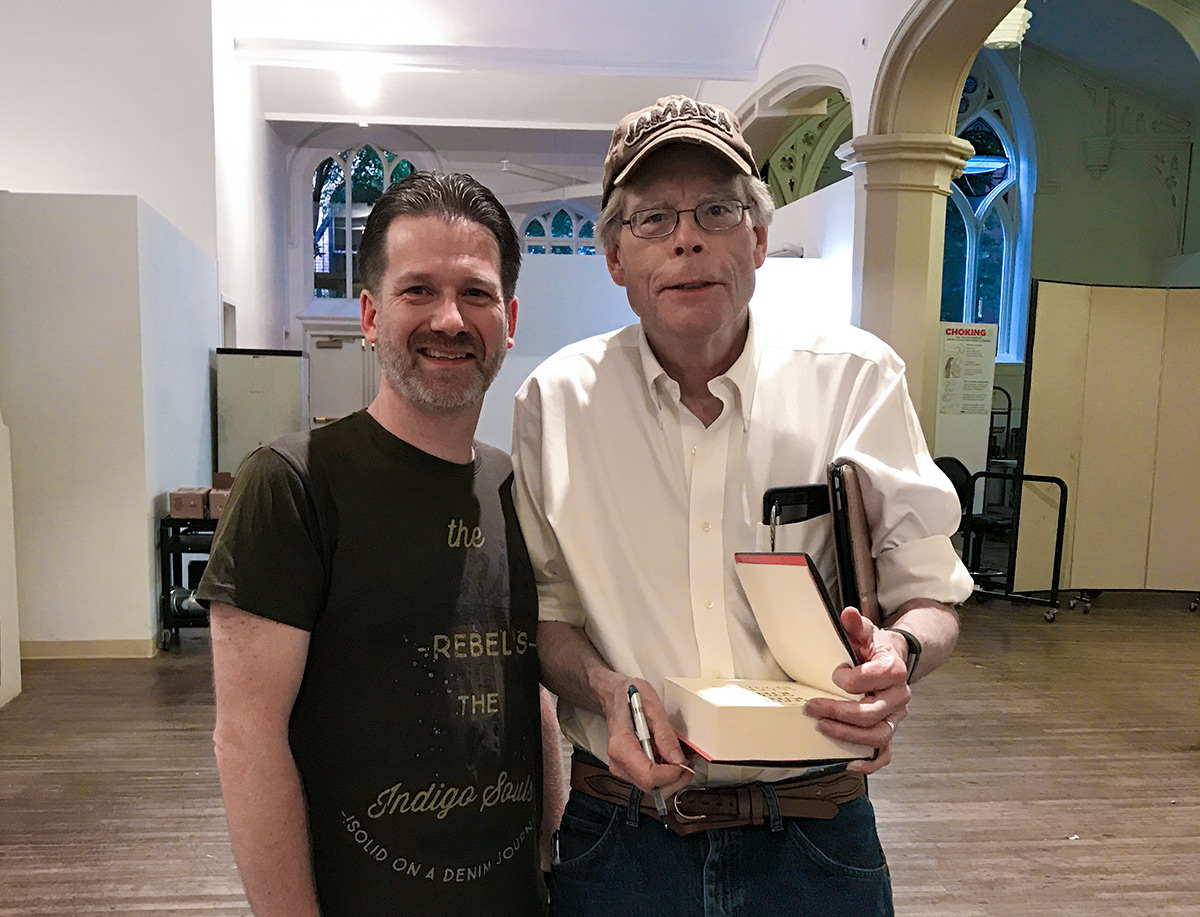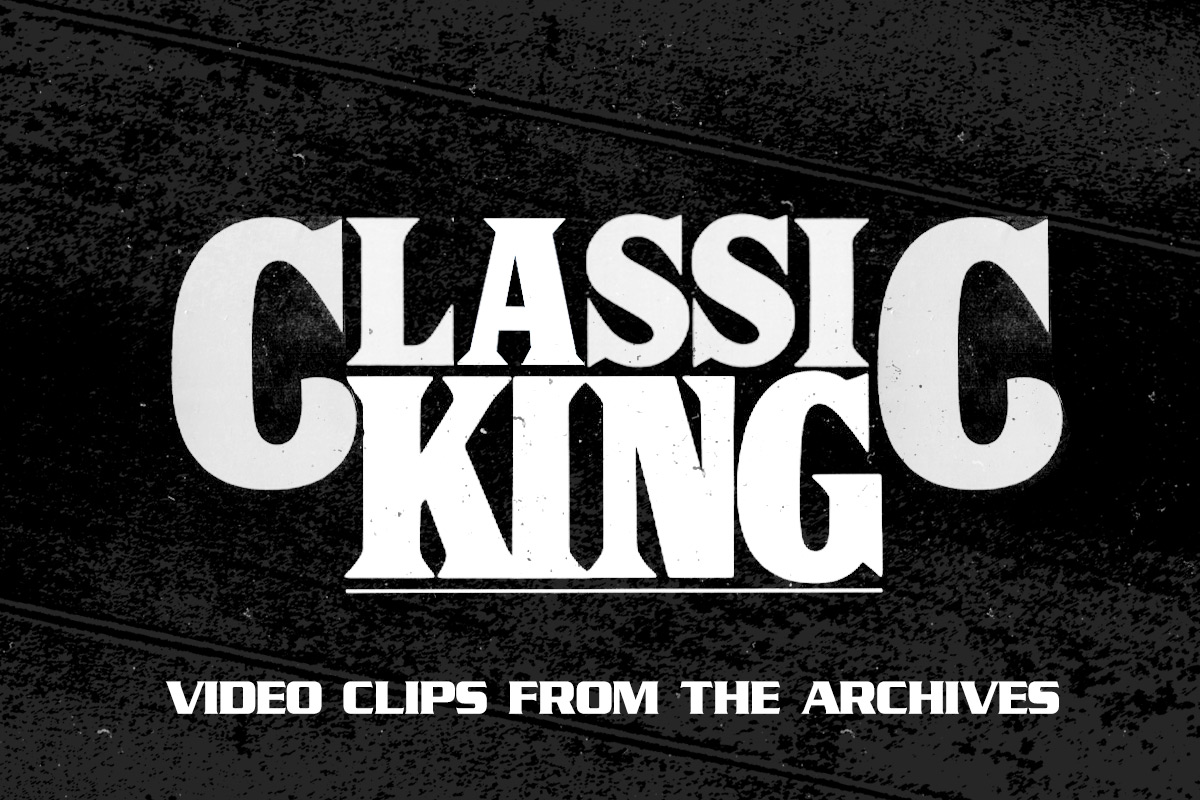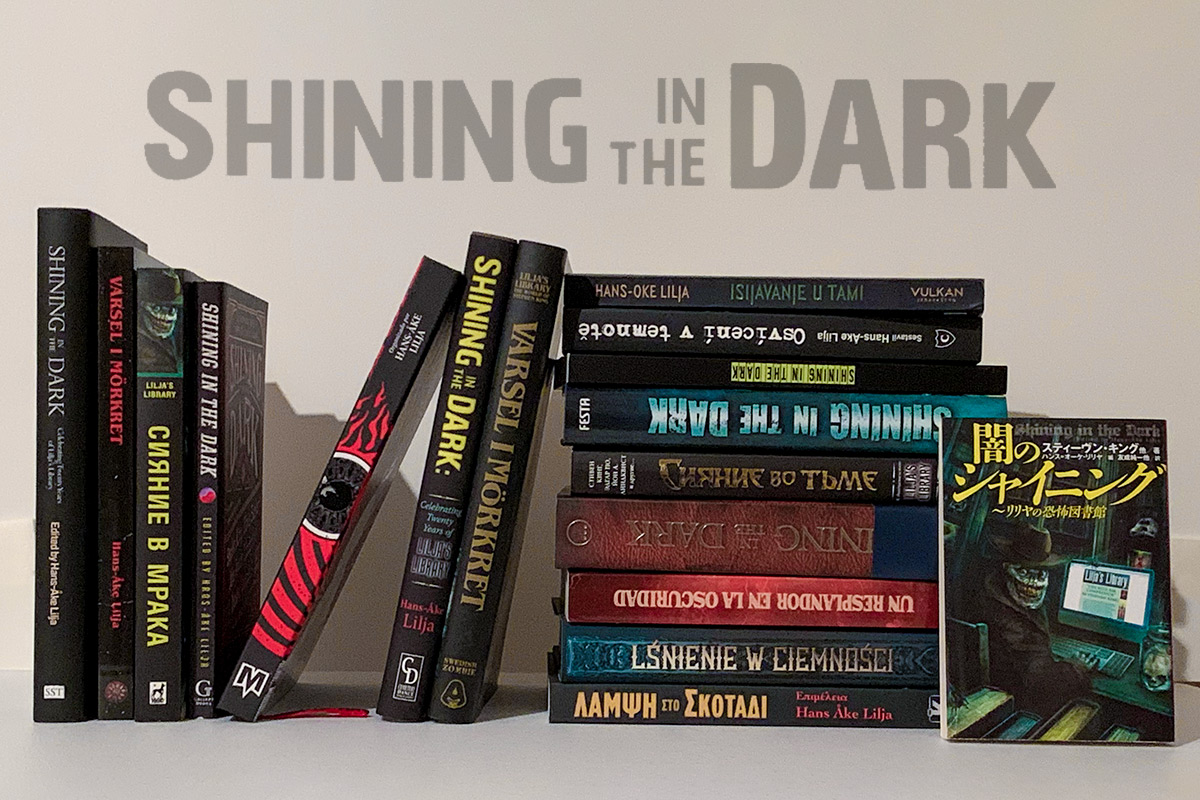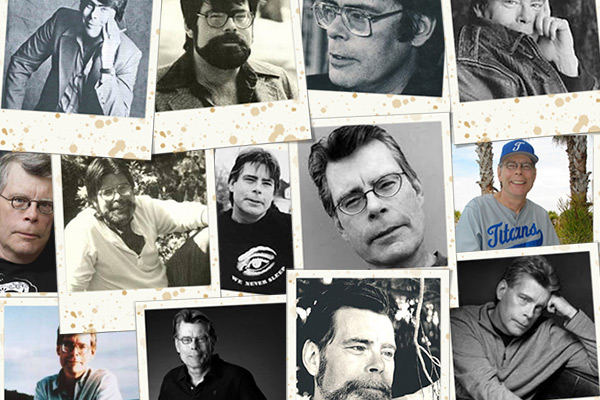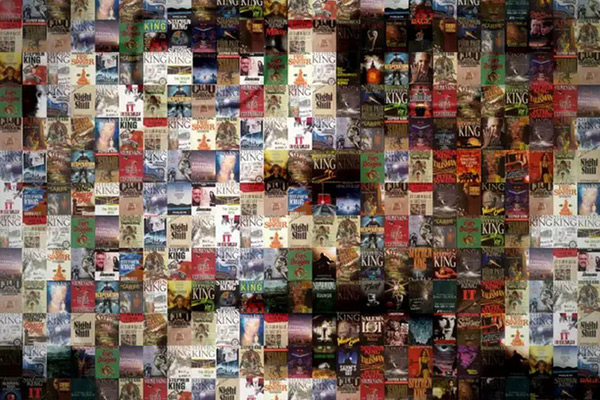Lawrence D. Cohen
Posted: September 25, 2012
_
 Lilja: You have written a lot of scripts, including the one for the 1976 version of Carrie. How does it feel to now translate the movie into a play?
Lilja: You have written a lot of scripts, including the one for the 1976 version of Carrie. How does it feel to now translate the movie into a play?Lawrence D. Cohen: When my collaborators and I first began to discuss musicalizing CARRIE, it seemed to us like perfectly natural and exciting material for a stage piece. As created by King on the page, Carrie and her mother Margaret exist as intensely larger-than-life characters with emotions that are so huge and fraught with emotion that their scenes together are already almost operatic. As a result, their encounters lent themselves naturally to the musical stage -- Carrie coming home and having to tell Margaret what happened that day at school that leads Margaret to launch into her fiercely religious convictions; the mother-daughter aria-like showdown at the end of Act I; Margaret unpacking every emotional weapon in her possession to try to prevent Carrie from going to Prom -- all of these were just the kind of out-of-the-box scenes that we were excited to dramatize and musicalize.
CARRIE existed first as a novel, then as a movie, and then as a musical -- and then a revised and revamped musical as well. Each of these pieces exist in their respective genres both independently and interdependently -- sharing the same basic narrative, but at the same time, different.
Lilja: Was it hard to make the translation? Did you do a translation at all or did you start from the book again? I guess there are some limitations with a stage play that isn’t there when you do a movie, right?
Lawrence D. Cohen: Having been the screenplay writer of the original film, I undoubtedly brought ideas about narrative to the table. For a variety of reasons, we decided go back and revisit Steve's novel rather than the film as our primary source material; we chose the book as our work template because it offered a depth of material and dialogue that were incredibly rich. As for difficulty, I think in looking back that our single biggest challenge was finding an overall tone to successfully meld the two worlds of the piece -- on one hand, Margaret and Carrie's strange and singularly beautiful but extremely isolated relationship that exists almost as if it's on another planet, and on the other, the high school kids' more pop world. Finding a way for those two landscapes to co-exist dramatically and musically under the same roof, so to speak, was our biggest job, and that was a continuing and evolving journey that continued right through this recent incarnation.
Lilja: What was the biggest obstacle for you translating the story to the stage?
Lawrence D. Cohen: Honestly, Hans, there were writing challenges as there are with all projects, but for the most part, the actual writing process was great fun. I've come to believe that all musicals are hard to do, and CARRIE was especially difficult -- at least the first time around. Our difficulty, particularly back in 1988, was in finding the right collaborators with the appropriate talent and vision to help us realize what we'd written.
In addition, I think people have a lot of preconceptions about a piece like CARRIE -- because it's Stephen King and an iconic movie, they expect horror, but compared to material like THE RING, say, or SAW, CARRIE isn't really a horror movie (or novel) at all. That's just its reputation, when in truth, it's a psychological suspense story that only turns into horror by the end of the Prom, then with Margaret and Carrie at home, and finally in the coda with Sue at Carrie's grave. The suspense and Carrie's gift of telekinesis are essential, of course, but none of that would work if we didn't believe deeply in the characters and their intense mother-daughter relationship. As writers, we spent a lot of time along the way talking about a show like Stephen Sondheim's intense and shocking SWEENEY TODD, and it served as one of our most useful and inspiring models.
Lilja: How much where you affected by the fact that the first attempt to put Carrie on the stage was a huge flop?
 Lawrence D. Cohen: The initial Royal Shakespeare Company production -- first in Stratford-Upon-Avon in London and then in New York on Broadway -- was a singularly insane experience, but not for the reasons people think. With the exception of Betty Buckley and Linzi Hately's remarkable performances as Margaret and Carrie, the rest of the show as mounted was boneheadedly wrong, and what was put up on stage wasn't the dream we had in our minds. It was designed and costumed like something from Mars rather than a recognizable American high school landscape, and that wild uneveness of tone in both staging and writing horrified us. I have to add that notwithstanding what we personally thought, audiences responded to it as if they were at a rock concert or an opera opening at LaScala -- wild applause and nightly bravos, plus little pockets of booing. In a word, it was extreme. and divisive -- unlike anything we'd ever experienced before. Had that version of the show been the dream of the show that was in our minds and people simply didn't like it, we would have called it a day and put it behind us then. But it wasn't, and we were determined to try to right that for our own sakes.
Lawrence D. Cohen: The initial Royal Shakespeare Company production -- first in Stratford-Upon-Avon in London and then in New York on Broadway -- was a singularly insane experience, but not for the reasons people think. With the exception of Betty Buckley and Linzi Hately's remarkable performances as Margaret and Carrie, the rest of the show as mounted was boneheadedly wrong, and what was put up on stage wasn't the dream we had in our minds. It was designed and costumed like something from Mars rather than a recognizable American high school landscape, and that wild uneveness of tone in both staging and writing horrified us. I have to add that notwithstanding what we personally thought, audiences responded to it as if they were at a rock concert or an opera opening at LaScala -- wild applause and nightly bravos, plus little pockets of booing. In a word, it was extreme. and divisive -- unlike anything we'd ever experienced before. Had that version of the show been the dream of the show that was in our minds and people simply didn't like it, we would have called it a day and put it behind us then. But it wasn't, and we were determined to try to right that for our own sakes. As for the effect on us, the three of us had each been lucky enough to have experienced our share of success when we were first starting out. Michael and Dean's first movie was FAME; together, they won an Academy Award for Best Song, and Michael won for Best Score as well; he was again nominated for Best Score for TERMS OF ENDEARMENT. Just a few years out of college, I had discovered the script and served as Production Executive on Martin Scorsese's ALICE DOESN'T LIVE HERE ANYMORE; that was followed by CARRIE, which was my first screenplay adaptation, before going on to write two hugely rated miniseries of Steve's books, IT and THE TOMMYKNOCKERS. Dean wrote the screenplay and songs for the hugely successful FOOTLOOSE.
In contrast, our musical of CARRIE was a huge and bruising setback, even though we received our share of rave notices along with the pans -- something people don't realize in the myths that have grown up around the show's mystique. Anyway, it took us a lot of time to lick our wounds and get past its failure before we decided a few years ago to regroup and create a new version of the show that we could license and send out into the world for future productions. And boy, was that gratifying! This time around -- working with our director, Stafford Arima, and a new creative team -- was everything the process of putting on a show should be, but rarely is!
Lilja: And what about releasing the stage play on a CD. I guess that is even harder since you lose the visual advantage? How hard was it and how did you manage it?
Lawrence D. Cohen: Actually, the cast recording has been an unequivocal joy. It's really CARRIE in its fourth incarnation -- book, movie, musical and now compressed and heightened listening experience. In a way, it's like a spin on an old radio play in the best sense of the word, allowing the listener to close their eyes and imagine what's happening on stage -- to fill in the blanks and see their own version of King's iconic tale. In addition, Sh-K-Boom/Ghostlight Records, the label that's releasing the CD, has been putting out some astonishing and exciting videos to promote the CD, and they're like getting a little glimpse into both the production and the recording experience in the studio.
Lilja: Carrie has been present in your life for a long, long time and now you’re working on a book in which you’re chronicling your Carrie experiences. Can you tell me a bit about that?
Lawrence D. Cohen: Of all the pieces I've written, CARRIE definitely occupies a unique place in my heart. It was my first love, my first screenplay, my first musical -- it spoke to me very directly. Now here it is again, resurrected as a stage piece and about to make its way out into the world, which was our hope for it in the first place.
Being the kind of compulsive writer I am, I wrote a journal and took tons of notes every step of the way over the years as a way of chronicling the experience for myself. I saved every scrap of paper every article and tape and photo. All these years later, I looked at these boxes and boxes of personal reminiscences in our attic, and thought I had a story to tell about our journey -- one that would hopefully be of interest to theater fans and Stephen King fans alike.

